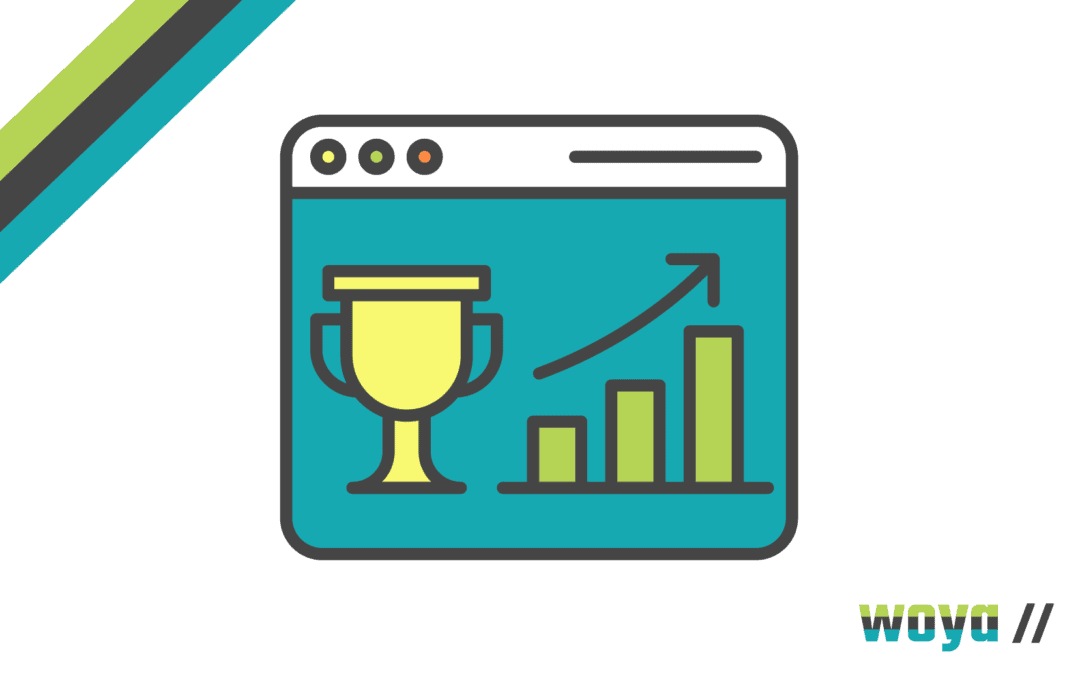It’s all well and good having a beautiful website full of all-singing, all-dancing functionality – but if no one visits it, its impact will be limited and the hard work poured into it fruitless.
There are various ways to gain visitors to your website and widen its appeal and exposure but perhaps the most important channel for visitors is organic traffic.
Here, we cover off what this actually is, why it’s so important and how to get more of it.
What is Website Traffic?
Website traffic refers to the amount of users visiting a website – both those who visit once, and those who return time after time. It is measured in ‘sessions’ (another word for these visits) and is the most common way to understand a website’s effectiveness at attracting an audience, keeping that audience on the site and interested, and ensuring they return.
What is Organic Traffic?
Organic traffic is visits to a website as a result of a user doing a search on a search engine and clicking a link on one of the results pages. In the long term, organic traffic can account for a large percentage of overall traffic and it is favoured amongst businesses because it is the cheapest option to attract users.
Organic traffic is often referred to as ‘free’, but this is just a technicality when compared to paid-for traffic. In most industries and sectors, businesses will need to invest in SEO (Search Engine Optimisation) activities and techniques in order to rank high enough to receive a decent amount of organic traffic.
Other types of website traffic include:
-
- Direct traffic – where a URL is typed directly into a search bar
- Paid search traffic – where traffic is obtained from a paid-for search ranking or advert
- Social media traffic – where traffic is received from click-throughs on social media channels
- Email traffic – where traffic is received from click-throughs on emails
- Referral traffic – where traffic is received from click-throughs on any other website.
All website traffic types have their part to play in overall traffic rates, but organic traffic is often considered the most important.
The Importance of Organic Traffic
Organic traffic is considered important for several reasons. Firstly, traffic obtained through organic means is more targeted and appropriate because those typing in a related term to a search engine have a specific intent; likely to be seeking out a website similar to, if not exactly comparable to, the one they land on – heightening conversion rates.
Although not technically free, organic traffic is cheaper to gain than that paid for, and when combined with the targeted nature of it makes it more cost-efficient too.
Studies suggest that search engine users are now increasingly savvy in recognising paid-for rankings and hold more trust in listings that are organic as opposed to those bought. This gives the immediate impression of more authenticity and reliability in the information held within these websites. Increased levels of organic traffic to a website in turn demonstrates the relevancy of said site to search engine algorithms; further enhancing its search ranking position.
As a result, organic traffic remains the preferred driver to websites. According to SEO service BrightEdge, organic traffic makes up 53.3% of all website traffic – a significant percentage.
How to Increase Organic Traffic
The amount of organic website traffic sent to any online presence can be enhanced by SEO techniques. SEO improves the understanding that the algorithms operating search engines have of websites, so that they’re able to better position them in relevant rankings and ensure they present the most useful, accurate results to users.
SEO can be improved in many ways, including (but by no means limited to):
-
- The publication of relevant, shareable and helpful content in blogs, articles, videos, infographics and audio files – to demonstrate the relevancy of the site to its audience
- The inclusion of relevant keywords throughout the site – to demonstrate which search terms would be appropriate for users looking to find the site
- The optimisation of meta data in the site – to demonstrate what the site is about and who it is intended and positioned for
- Links to and from other trusted websites – to demonstrate the authenticity of the site
- Enhanced UX (User Experience) in navigating and using the website – to demonstrate the ease of use for the end user
- The implementation of mobile responsiveness to ensure UX is consistent across all devices – to demonstrate further enhanced experience for the end user, no matter what device they’re using to access the site
- The implementation of relevant safety measures – to demonstrate security for the end user.
All of these contribute toward enhanced organic search rankings, but also factor into the price you can expect to pay for paid-for listings.
Paid-for listings will be charged at a higher rate if the search engine does not believe your website to be relevant to the search term or if it delivers a sub-standard customer experience.
Where To Start With Increasing Your Website Organic Traffic
Driving increased levels of organic traffic is cost effective and can help improve conversions and contacts made through a website, and so should be prioritised by businesses.
If you don’t already know what percentage of your website traffic is organic, why not request a FREE website SEO Audit to understand more about what levels of traffic your website is attracting, and where this traffic is coming from.

